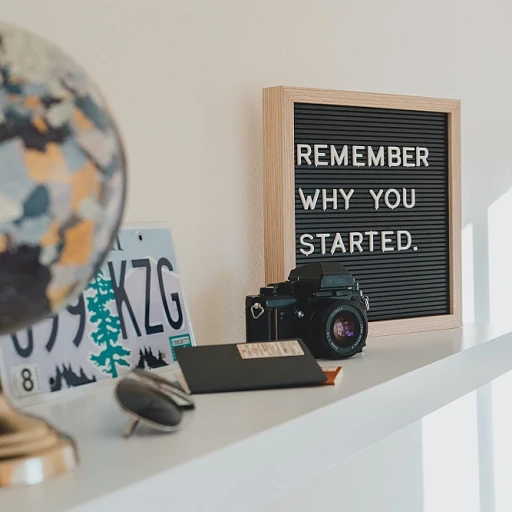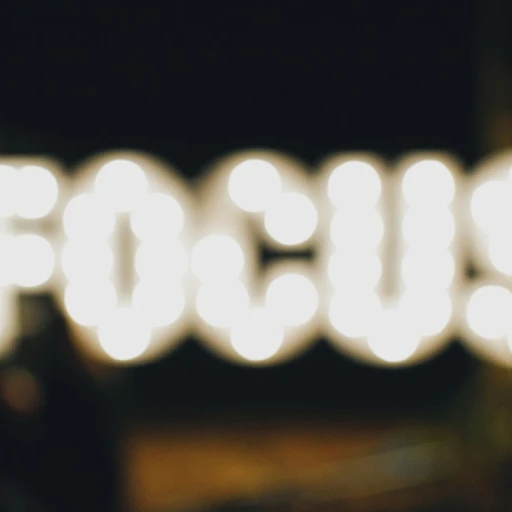Understanding the HR Executive Role
Getting to Know the HR Executive Role
Before stepping into an interview for an HR executive position, it’s crucial to really understand what this role entails. An HR executive is not just a manager; they're a strategic partner within a company, responsible for aligning the human resources department with the organization’s goals. They play a key role in shaping company culture, managing talent acquisition, and ensuring diversity and inclusion within the workplace.
In this position, you’ll need to wear many hats. From employee management to strategic planning, the role demands a blend of leadership skills and general management experience. It’s about being a business partner who can drive change and influence business decisions. The job description might list responsibilities like overseeing HR policies, managing employee relations, and leading initiatives for employee engagement and development.
What Skills Make an HR Executive Stand Out?
To excel in an HR executive interview, you need to demonstrate a mix of technical skills and soft skills. Leadership and strategic thinking are at the top of the list. You’ll need to showcase your ability to lead teams, manage conflicts, and develop strategies that align with business objectives.
Communication is another vital skill. As an HR executive, you'll be the bridge between employees and management, so being able to convey ideas clearly and effectively is essential. Problem-solving skills are also crucial, as you'll often need to address complex issues that affect the entire organization.
Understanding Company Culture and Values
Every company has its own unique culture and values, and understanding these can give you a significant edge in your interview. Researching the company’s mission, vision, and core values will help you tailor your answers to reflect their expectations. It also shows that you’re genuinely interested in becoming a part of their team, not just looking for any job.
Consider how your personal values align with the company’s. This alignment is important because it affects how you’ll fit into the work environment and interact with other employees. Companies often look for candidates who can seamlessly integrate into their existing culture while also bringing fresh perspectives.
For more insights on interviewing for different HR roles, you might find this resource helpful.
Researching the Company and Industry
Get to Know the Company Inside Out
Before you step into that interview room, make sure you know the company like the back of your hand. It's not just about memorizing the company's mission or values. Understand their business model, recent news, and where they stand in the industry. Check out their company culture on platforms like Glassdoor or LinkedIn. This knowledge not only helps in answering questions but also in asking the right ones.
Think about it: if you were hiring for an HR executive role, you'd want someone who knows what they're getting into, right? This is where your research pays off. It shows you're genuinely interested and not just looking for any job.
Understanding the Industry
Every industry has its own quirks and trends. Whether it's tech, finance, or healthcare, understanding these can give you an edge. For example, if you're interviewing for a role in tech, know the latest in talent acquisition trends and how they affect HR strategies. This kind of insight shows you’re ready to step into a senior role and make informed decisions.
Also, consider the diversity and inclusion initiatives in the industry. Companies today are focusing more on creating inclusive work environments, and being aware of this can set you apart as a forward-thinking candidate.
Align Your Experience with the Job Description
Once you've done your homework on the company and industry, it's time to align your experience with the job description. Highlight the skills and experiences that make you a perfect fit for the position. For instance, if the company is looking for someone with general management skills, emphasize your experience in managing teams or projects.
Remember, it's not just about listing your past roles. Share stories that demonstrate your problem-solving skills, leadership, and how you've contributed to business success. This paints a picture of you as a proactive and impactful executive.
Prepare Thoughtful Questions
Interviews are a two-way street. While you're being evaluated, it's also your chance to assess if the company is the right fit for you. Prepare thoughtful questions about the company's goals, management style, and what they expect from someone in the HR executive role. This not only shows your interest but also helps you understand if this is where you want to work.
For more insights on navigating HR interviews for senior roles, check out this comprehensive guide.
Crafting Your Personal Brand
Building a Standout Personal Brand for HR Executive Interviews
It’s no secret the HR executive role demands a candidate who's more than a paperwork wizard. This position requires someone who embodies the company’s culture while propelling its strategic vision forward. Because of this, developing a personal brand is fundamental. Think about what truly sets you apart. Your personal brand should align with the organization's essence yet showcase your unique strengths. Consider:- Values: Reflective of what's important to the company, such as diversity and inclusion.
- Skills: A mix of advanced HR acumen and general management knowledge.
- Achievements: Quantifiable success stories from previous roles.
- Personality: Traits that echo through your communication and approach.
Unpacking the Company Culture
Before stepping into the interview, dig into the company’s work environment and culture. Are there common threads in their employee success stories? Insights like these can offer a glimpse of what they value in an executive. Consider the business website, social media, and company reviews for clues. Even talk to current or previous employees if possible—this informal intel helps gauge if you can seamlessly fit into their management structure while fulfilling the job description.Positioning Yourself as the Solution
Once familiar with the interview questions and the company’s backdrop, clarify why you’re the solution to their needs. Your answers can subtly reinforce your understanding of their organizational dynamics and how your role as an HR executive will address pain points. Sample scenarios: How have you guided large teams through transitions, or spearheaded projects enhancing employee engagement? For tips on acing HR executive roles, explore articles such as HR Director role interviews for a deeper perspective.Integrating Your Leadership Story
Your interview is the stage where leadership and strategic thinking shine. As you answer questions, weave in how your leadership style effectively manages people and processes. Behavioral questions are a great avenue to express this. Highlight not just experience but the trajectory of your growth in executive-level scenarios. Talk about not just managing change, but driving it effectively and inclusively. On top of that, familiarize yourself with common questions by checking out articles on mastering interview techniques to give you that added edge in presenting your leadership narrative.Preparing for Common HR Interview Questions
Mastering the Art of Answering HR Interview Questions
When you're sitting across from an HR manager, the questions they ask are designed to see if you're the right fit for the role and the company culture. It's not just about your resume; it's about how you think, how you handle challenges, and how you align with the organization's values.
First, familiarize yourself with the job description. Understanding what the company is looking for in an HR executive will help you anticipate the types of questions you might face. Questions often revolve around your experience in general management, your ability to handle employee relations, and your approach to diversity and inclusion.
Common HR Interview Questions
- Behavioral Questions: These questions assess how you've handled situations in the past. For example, "Can you describe a time when you had to resolve a conflict between employees?" Your answer should reflect your problem-solving skills and ability to maintain a positive work environment.
- Leadership and Strategy: As an HR executive, you're expected to lead and strategize. A question like "How do you align HR strategies with business goals?" allows you to showcase your strategic thinking and leadership abilities.
- Company Culture: Understanding and contributing to the company culture is crucial. Be prepared to discuss how you would fit into or enhance the existing culture. "What do you think is the most important aspect of our company culture?" is a question that tests your knowledge of the organization.
Crafting Your Answers
Your answers should be concise yet comprehensive. Use the STAR method (Situation, Task, Action, Result) to structure your responses to behavioral questions. This method helps you clearly communicate your experiences and the outcomes of your actions.
For example, if asked about a time you implemented a new HR policy, you might say:
"In my previous role, we faced high turnover rates (Situation). I was tasked with developing a retention strategy (Task). I introduced an employee recognition program and flexible work options (Action), which reduced turnover by 15% in the first year (Result)."
Preparing for the Unexpected
While you can anticipate many questions, some might catch you off guard. It's okay to take a moment to think before you answer. This shows that you are thoughtful and consider your responses carefully. If you don't know the answer, it's better to be honest and express your willingness to learn.
Remember, an interview is a two-way street. It's also your chance to ask questions about the organization, its challenges, and its future. This not only shows your interest but also helps you determine if the company is the right fit for you.
Showcasing Leadership and Strategic Thinking
Demonstrating Your Leadership Prowess
In an HR executive interview, showcasing your leadership skills is crucial. Companies are on the lookout for candidates who can inspire and lead teams effectively. Reflect on your previous experiences where you led a team or project successfully. Did you manage to turn around a challenging situation? How did you motivate your team during tough times? These stories can make your leadership abilities shine.
For example, if you spearheaded a diversity and inclusion initiative, discuss the strategies you implemented and the positive outcomes. Highlighting your ability to lead with empathy and strategic vision will resonate with interviewers. Remember, they're not just hiring a manager; they're looking for someone who can shape the company's culture and drive its mission forward.
Strategic Thinking: A Key to Success
Strategic thinking sets apart a good HR executive from a great one. The interview is your chance to demonstrate how your strategic skills have benefited past employers. Consider discussing a time when you identified a business challenge and proposed a solution that aligned with the company's long-term goals.
For instance, you might have developed a talent acquisition strategy that reduced turnover by aligning hiring practices with the company's core values. Sharing such examples shows that you're not just focused on immediate problems but are also capable of thinking ahead, which is invaluable for an executive role.
Addressing Behavioral and Situational Questions
Behavioral questions are a staple in HR interviews, designed to assess how you've handled situations in the past. Prepare by reflecting on your experiences and formulating concise, impactful stories. Use the STAR method (Situation, Task, Action, Result) to structure your answers effectively.
For instance, when asked about a time you resolved a conflict within a team, describe the context, your role, the actions you took, and the outcome. This approach not only answers the question but also highlights your problem-solving skills and ability to work in a team.
Highlighting Your Fit with Company Culture
Understanding and aligning with the company's culture is as important as having the right skills. During the interview, demonstrate how your values and work style match the organization's culture. Discuss experiences where you adapted to a new work environment and contributed positively to the team dynamics.
For example, if the company values innovation, share a story where you introduced a new idea that improved processes or outcomes. Showing that you can seamlessly integrate into the company's culture will make you a standout candidate.
Practicing Interview Techniques and Etiquette
Mastering the Art of the Interview
When it comes to acing an HR executive interview, it's not just about what you say but how you say it. The interview process is your chance to show that you're the right fit for the role, and how well you connect with the company's culture and values. Here’s how you can make a lasting impression.
Polish Your Communication Skills
Communication is key in any interview, but especially for a human resources position where you'll be expected to interact with employees and management regularly. Practice speaking clearly and confidently. Remember, the way you answer questions can say as much about you as the answers themselves.
- Be Concise: Keep your answers focused and to the point. Avoid rambling, and make sure each response highlights your skills and experience relevant to the job description.
- Engage with Your Interviewer: Use active listening techniques. Nod, make eye contact, and ask clarifying questions if needed. This shows that you're engaged and interested in what the interviewer has to say.
Showcase Your Leadership and Strategic Thinking
As an HR executive, you’ll need to demonstrate your ability to think strategically and lead effectively. Prepare to discuss past experiences where you’ve successfully led a team or implemented a strategy that benefited the organization.
- Use the STAR Method: Structure your answers using the Situation, Task, Action, and Result format to clearly convey your problem-solving and leadership abilities.
- Highlight Achievements: Share specific examples of how you've contributed to talent acquisition or improved company culture. This is your chance to shine as a business partner and strategic thinker.
Practice Makes Perfect
Before the big day, rehearse your answers to common interview questions. This will help you feel more comfortable and confident during the actual interview. You might even consider a mock interview with a friend or mentor to get feedback on your performance.
- Record Yourself: Listening to your own responses can help you identify areas for improvement, such as filler words or nervous habits.
- Anticipate Behavioral Questions: Be ready to discuss scenarios that demonstrate your leadership and management skills. Think about how you’ve handled challenging situations in the past.
Mind Your Manners
Interview etiquette can be just as important as your answers. Arrive on time, dress appropriately for the company culture, and be courteous to everyone you meet. A positive impression goes a long way in showing that you're the right candidate for the executive level position.
Remember, the interview is as much about you evaluating the company as it is about them evaluating you. It’s an opportunity to see if the company’s work environment and values align with your own. Good luck!







